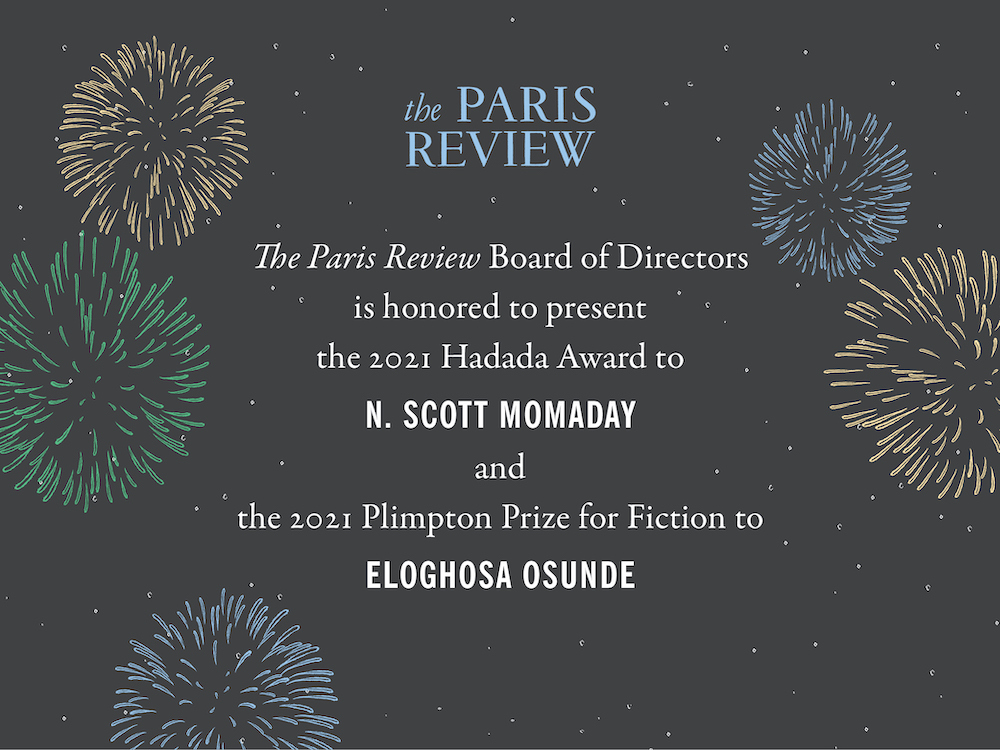Every year, the Paris Review Board of Directors gives awards to recognize remarkable contributions to literature. One of these, the Plimpton Prize for Fiction, is a $10,000 award that celebrates an outstanding story published by an emerging writer in the magazine in the previous calendar year. The winner of the 2021 Plimpton Prize for Fiction is Eloghosa Osunde, for her story “Good Boy,” which appeared in the Fall 2020 issue.
In commemoration of this year’s Plimpton Prize, we’re presenting a taped conversation between Osunde and the artist and writer Akwaeke Emezi, introduced by managing editor Hasan Altaf. The video, which appears below, will be available to stream on our YouTube channel from April 28 to May 11.
And don’t forget: readers are also invited to stream a special free screening of PBS’s American Masters documentary N. Scott Momaday: Words from a Bear, which will be available until Friday, April 30. Momaday is the recipient of the 2021 Hadada Award, presented each year to a “distinguished member of the writing community who has made a strong and unique contribution to literature.”
from The Paris Review https://ift.tt/3aMptIx

Comments
Post a Comment